12 Grocery Items You Should Always Splurge On, According to Chefs
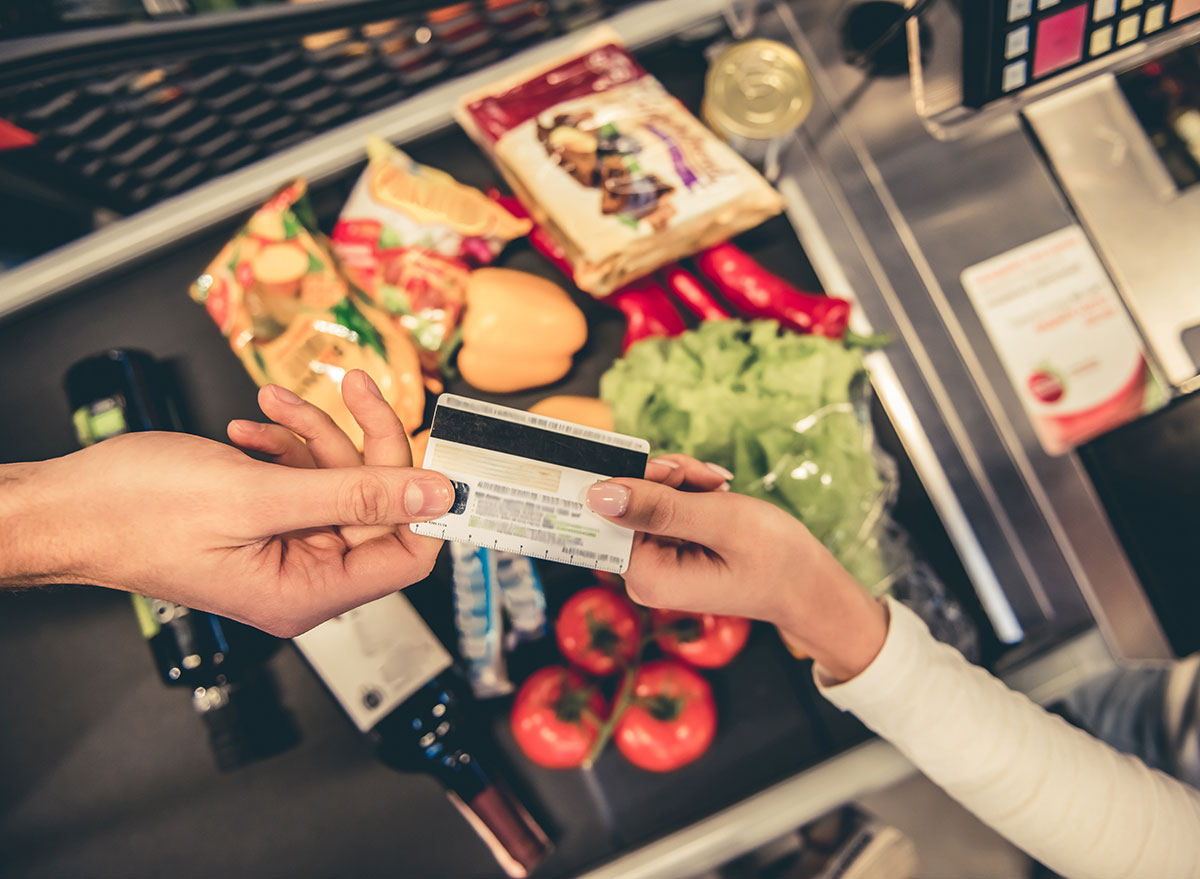
You're probably tired of hearing about it, but the reality is that grocery prices are still at an all-time high—up over 11% compared to last year—and don't appear to be wavering.
Since buying less food is not really a viable option, many shoppers have instead turned to discount stores like Aldi or Lidl, have religiously begun shopping the sales, or have resorted to lower cost alternatives in order to stay on budget. But, it can turn into a tricky balancing act trying to determine where you can get away with the cheaper off-brand item and where you can't. Some low-cost products end up being nearly dead ringers for their more expensive counterparts, but there are some areas where it's simply not worth the extra dollar saved.
To help you sort it out and make your next grocery trip run much smoother, we've enlisted the help of a few highly experienced chefs. Read on to find out which grocery foods, drinks, and other kitchen staples the experts always recommend splurging on if you can swing it.
Beef
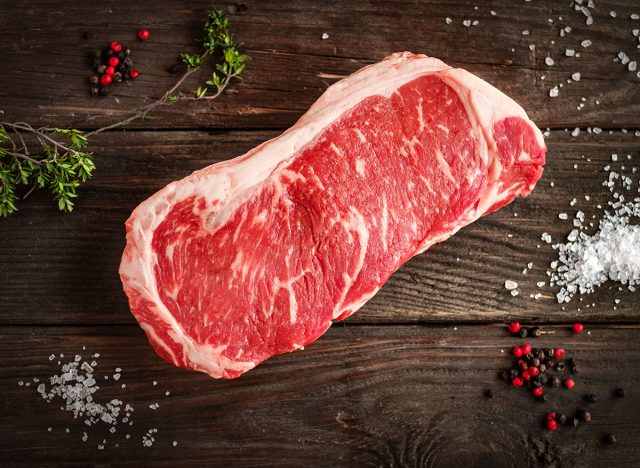
If there's one specific area of the store where you should always try to silence that frugal side of your mind, it's the meat counter. Splurging on more premium meats like grass-fed beef is a must, says classically trained chef Dennis Littley, creator of the popular blog Ask Chef Dennis. "Grass-fed beef is often more expensive than conventionally raised beef, but it's worth the investment," he explains. "It's leaner and contains more nutrients than conventionally raised beef. It's also more environmentally sustainable, making it a better choice for the planet."
In addition to looking out for the grass-fed label, always make sure the meat you're picking up has the right coloring and smell, indicating that it is fresh and safe for consumption. And, do yourself a big favor and always avoid any kind of discounted or clearance meat—for obvious reasons.
Fish
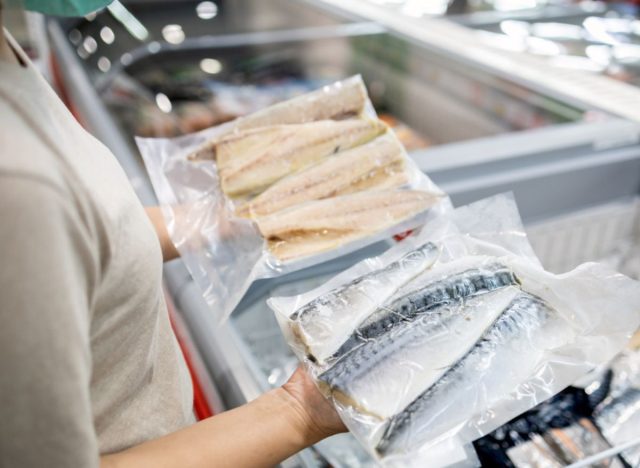
For much the same reasons, Littley also advises shoppers to reach for the more expensive yet healthier and more sustainable pieces of fish at the grocery store. He says that wild-caught seafood is your best option as it tends to contain more nutrients and less harmful pollutants than standard farmed fish. This advice goes for both frozen and canned fish as well—both options which can carry all the same health benefits as any other fresh lean protein, especially when sourced and handled appropriately.
Produce
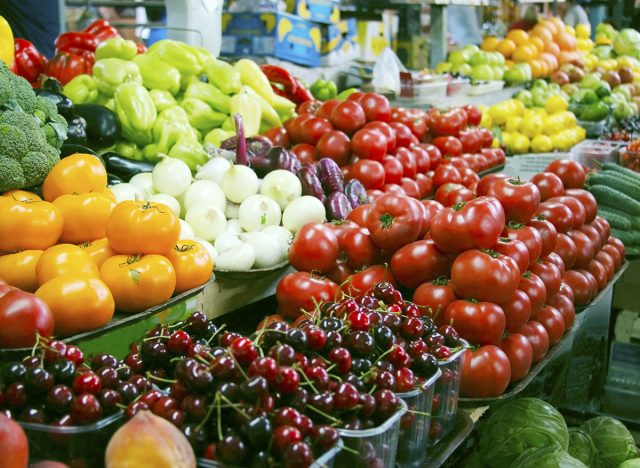
It's easy to steer your cart clear of those organic fruits and vegetables, which look identical to the rest but come with a largely inflated price tag. But, Littley explains why they're worth the added cost. "Organic produce is grown without synthetic pesticides or fertilizers," he says. "It's often more expensive than conventionally grown produce, but it's a healthier and more environmentally sustainable option. It's also often more flavorful than conventionally grown produce." Now paying a little bit more for a lot more taste and substantially less toxins doesn't sound so bad, does it?
Coffee and Tea
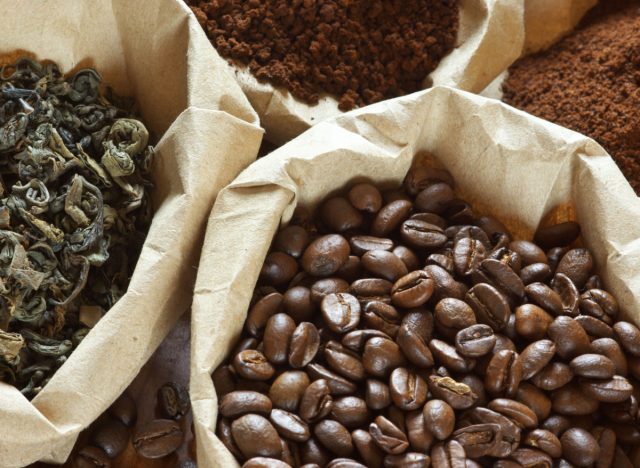
For many people, enjoying a cup (or four) of coffee or tea is an every morning kind of occurrence. So, it only makes sense to follow in Littley's footsteps and invest in products that are going to add both quality and rich flavor to your days. Well-made coffees are also more likely to give you the effects you're looking for, such as increased energy levels, improved heart health, and better regulation of weight. Likewise, higher quality teas come with their own health benefits, depending on which kind you drink.
When you're browsing the coffee aisle, choose the crème de la crème brands like Stumptown Coffee Roasters, Intelligentsia, or Death Wish Coffee, which use only the best ingredients. As for tea, go with loose leaf options over processed tea bags.
Chocolate
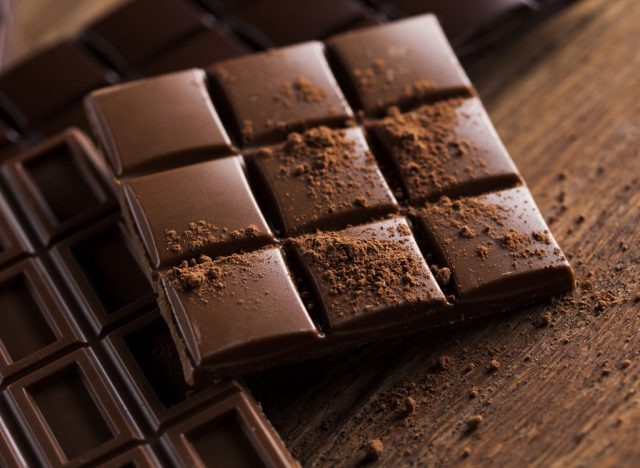
"Premium chocolate is often made with higher-quality ingredients and has a richer, more complex flavor than lower-quality chocolate," says Littley. Although priced a little higher, this purer chocolate is going to elevate any baked good you add it to, or make for a great sweet treat all by itself. Higher quality chocolate is also the healthier choice in the long run–still consumed in moderation of course. And, if you want to up the ante, select dark chocolate over milk or white.
Honey
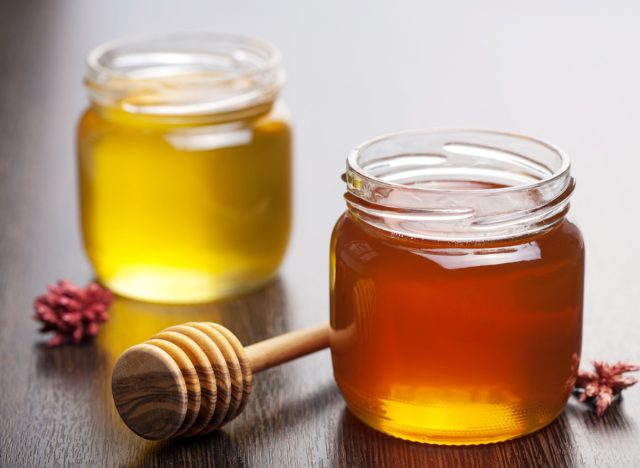
Even though it's more expensive than processed, quality raw honey is truly the bee's knees and worth the added expense, according to Littley. "Raw honey is unpasteurized and unfiltered, which means it retains its natural enzymes and nutrients," he says. "It's also often sourced from local beekeepers, making it a more sustainable option."
Herbs
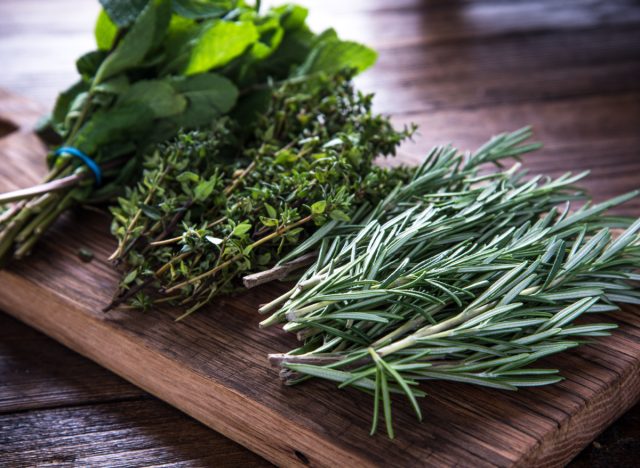
Fresh herbs are extremely versatile and add both flavor and nutrition to nearly any meal you decide to whip up, says celebrity chef George Duran. Perhaps best known as the host of various cooking shows, including Food Network's Ham on the Street and TLC's The Ultimate Cake Off, Duran says fresh herbs just might be the most important item for any at-home cook to have handy—and he does not recommend skimping when you're making your choice at the grocery store. "It's easy and often inexpensive to buy shakers of dried herbs, but they will never carry the flavor, aroma, or nutritional value of ones that are used fresh," he says.
If you're looking for an easy solution, Duran speaks highly of frozen herbs from the brand Dorot Garden. "They have a two-year shelf life, so are fresh year-round, and are a great alternative for folks who don't have the green thumb needed for a personal herb garden," he says.
Olive Oil
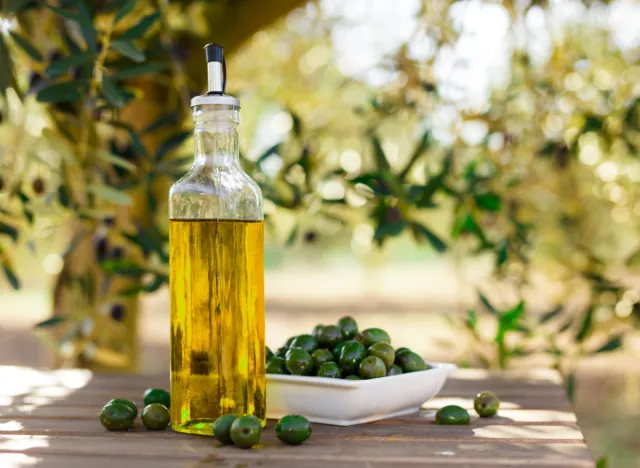
Additionally, Duran would never dream of cutting corners when it comes to purchasing olive oil. "Similarly to using fresh herbs over dry, good quality olive oil has a noticeably better flavor than more generic olive oil," he points out. "Especially when you're using olive oil as a condiment on your finished product, such as on a salad, having that pure, delicious flavor makes all the difference."
When shopping for olive oil, it's also important to remember that more expensive doesn't always mean better quality—so don't just toss the most costly bottle in your cart, hoping for the best. Splurging on this kitchen staple could mean just spending a fraction more for a product with real, pure ingredients and higher overall polyphenol levels. Look for darker tinted bottles—this helps to protect the oil from light—and for notes of either fruits or vegetables when you give it a quick whiff.
Juice
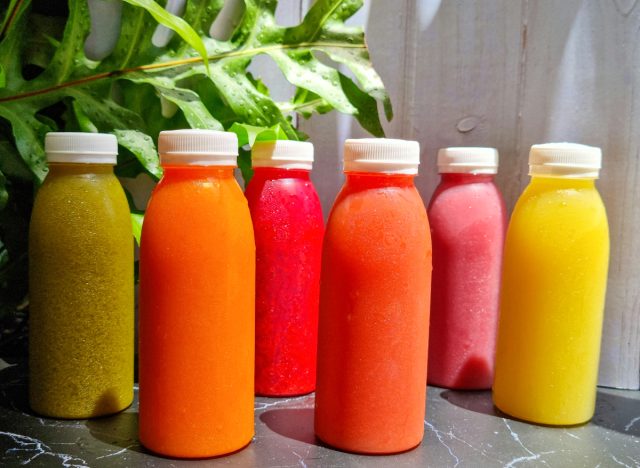
"Often when we're buying juice, it's because we want something sweet to drink that isn't as sugary and unhealthy as a soda," says Duran. "Yet, many juices are loaded with added sugars that really make them no healthier than the sugary drinks we were trying to escape." To break free from this dilemma, the chef recommends always throwing a couple extra dollars at drinks that are 100% juice. "If they are cold-pressed, even better, because cold pressing allows the ingredients to retain the bulk of their flavor and nutrients, leaving less need for additional sweeteners," he says.
Salt
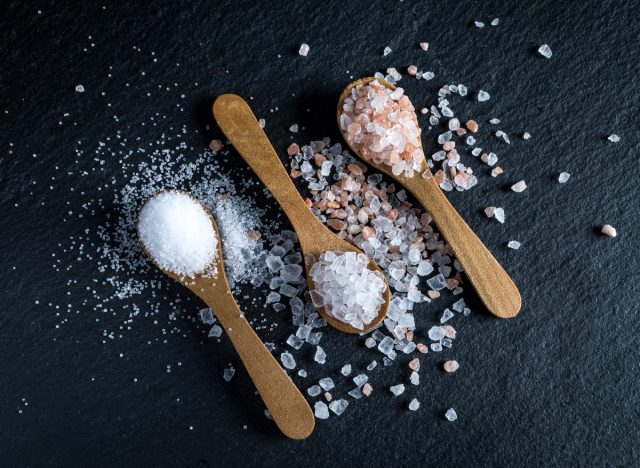
Salt ranks near the top of the splurge list for chef Tobias Cox, vice president of food and beverage at Dimension Hospitality. Cox says a great coarse salt brings more flavor to a dish compared to typical boxes of salt and has the power to drastically change both the look and texture of a meal in amazing ways. There are many to choose from, but his top suggestions include smoked Hawaiian sea salt or pink Himalayan rock salt. And don't worry, you won't be too salty about the extra cost, after you taste the difference.
Garlic
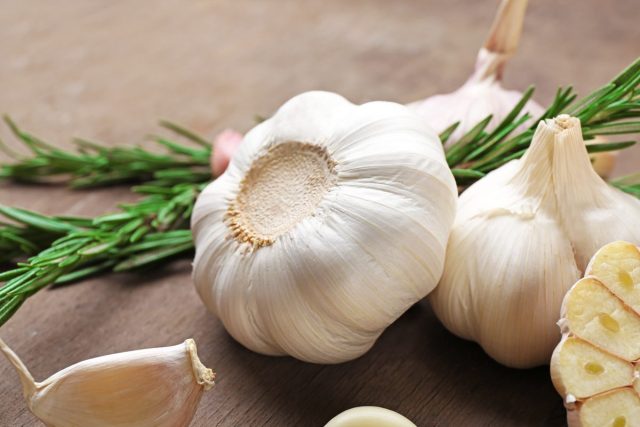
We can all agree garlic makes everything taste better. But, really great garlic is unmatched. Cox always makes sure to select whole fresh garlic—and specifically smaller heads. He says even though these smaller garlic pieces are a little more difficult to chop and prepare, it will taste better because garlic tends to lose its flavor as it gets bigger. The chef adds that it also tastes excellent roasted whole and chopped finely for either a chimichurri or marinade.
Butter
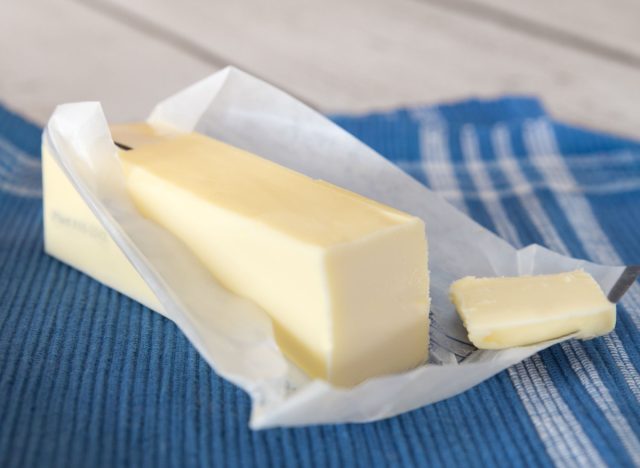
Butter might not immediately come to mind as a luxury item, but Cox cannot stress it enough: just buy the good butter! The spread is used in essentially every meal as either a core ingredient or an essential topping on everything from rolls and baked potatoes to pancakes and croissants. So, it's not an item to cheap out on. Cox recommends selecting either Plugrà or the trendy Irish butter that's all the rage right now. Try Kerrygold or even Aldi's competitively priced Countryside Creamery brand.









